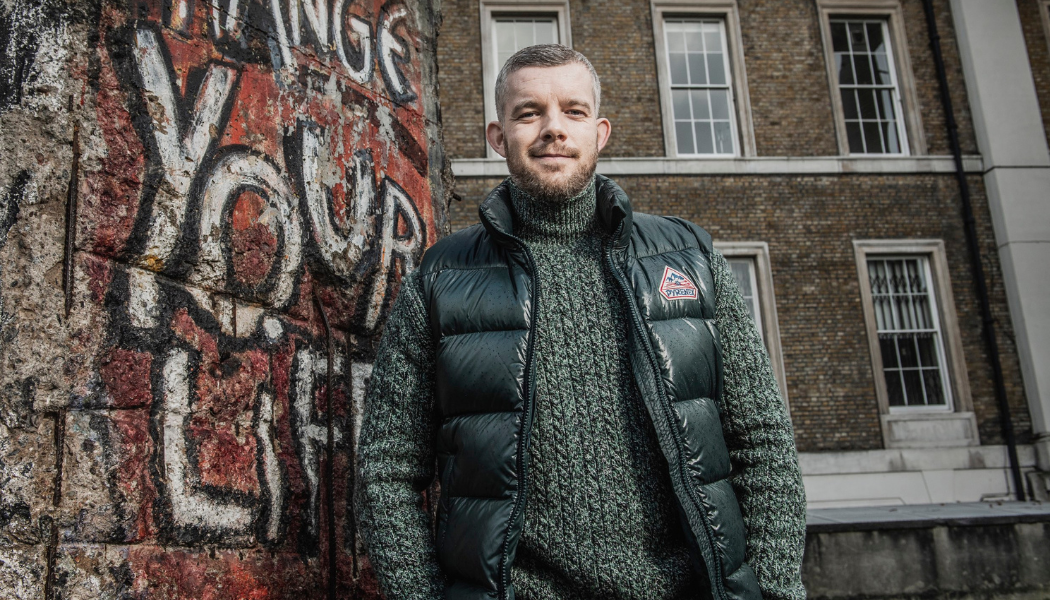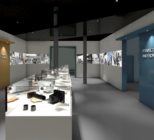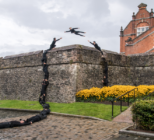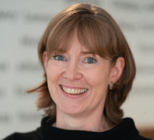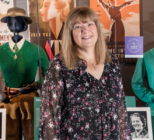Over the course of the episode, listeners are given an overview of the origins, trajectory and consequences of a single conflict, so that they go away with a firmer grasp of world affairs (or at least enough to contribute to a pub quiz…!). Senior curators and guests chat as they explore Imperial War Museums’ rich collections after hours, guided through objects and meeting surprise guests that bring conflict to life.
Series One, released in spring 2021, focused on a number of contemporary conflicts including Iraq, Libya, Syria, Yugoslavia and Northern Ireland. Celebrity guests included Carey Mulligan, Jamali Maddix, Munya Chawawa and Deborah Frances White. It was released to critical acclaim from the press and listeners, so later in 2021 we decided to renew the podcast for another season – this time focusing on the Cold War era with the help of funding from the Swire Charitable Foundation.
Our first port of call was the museum’s Cold War curatorial team, who we worked with to draft a list of conflicts that we’d explore based on IWM expertise and relevant collections – The Berlin Wall, The Malayan Emergency, The Mau Mau Uprising, The Korean War, The Vietnam War, and the Falklands War.
We also explored looking at The Suez Crisis, The Biafran War, The Partition of India and others, but sadly resources extended to seven episodes only. The curators also provided us with a much-needed chronological summary which would later form the basis of each episode (we are so grateful to have such brilliant in-house expertise at IWM), and recommended us an external historical expert for each episode, as well as a list of museum objects that would tell the story of the conflicts.
Next up was the celebrity guest. We put together an extensive list of potential guests to invite (which must have included up to a hundred names!) based on their following size, appeal to our audiences, podcast experience, public speaking abilities and interest in the subject matter. Eventually we were able to finalize a starry lineup that included Eddie Izzard, Phil Wang, Katherine Parkinson, Cerys Matthews and more.
The final part of the creative process was the recording itself! In collaboration with curators, external historians, the collections team and our freelance audio producer Lauren from Rethink Audio, we put together a detailed script for all podcast participants with prompt questions for celeb guests (for example: Who were the Viet Cong? What does Mau Mau actually mean?), as well as timings and the location of objects being introduced.
The recording day is always a lot of fun but a very intense process – our guests and extended team always end up consuming copious amounts of snacks to keep our energy going throughout the 3 hours of focused discussion! Our goal is to keep the tone of the conversation as relaxed, informal and fun as possible, while still ensuring the episode is informative and respecting the gravity of the subject matter.
It was also essential to ensure that the voices of those who lived through each conflict are represented in each episode, so we made sure to include conflict eyewitnesses like Phan Thi Kim Phuc, the famous ‘Napalm Girl’ from Vietnam, renowned photographer Don McCullin, Brigadier Brian Parrit who fought in the Korean War and Richard Gough who fought in the Falklands and was aboard the HMS Ardent which was sunk in 1982. In our previous series we heard from Syrian filmmaker Waad Al-Kateab and Jo Taylor, a school teacher from Northern Ireland.
Finally, we were able to use a rich array of objects from the museum collections in this series, including a piece of the Berlin Wall, a sword used by Mau Mau rebels, British propaganda footage depicting the counter-insurgency in Malaya, and the HMS Belfast ship itself, which was used extensively during the Korean War.
Series Two of Conflict of Interest is now out across all podcast streaming platforms, so please do listen! We’ll also be releasing two more extra episodes on Ukraine and on the anniversary of Britain’s nuclear project, so stay tuned for both of those later in the year.

